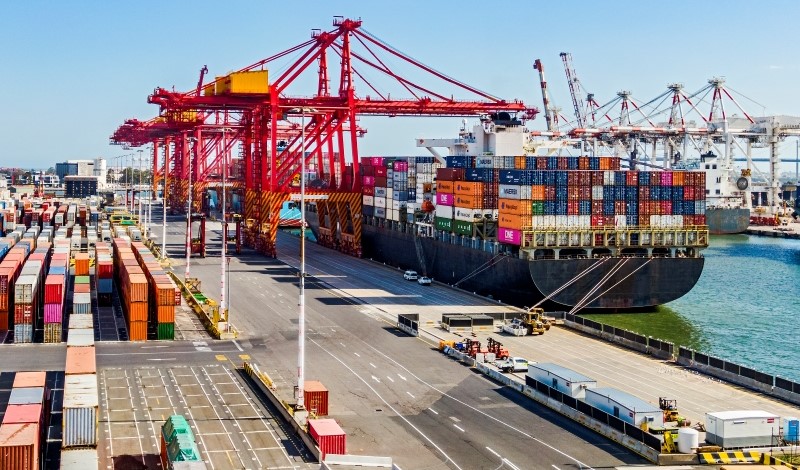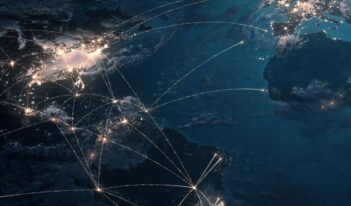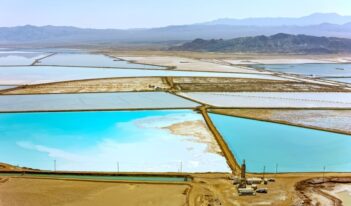
Scholars propose WTO reforms to address growing U.S.—China economic tensions.
The World Trade Organization (WTO), comprising 180 member nations that account for 98 percent of all world trade, serves an inimitable role in shaping the rules governing how nations interact in the marketplace. The importance of the WTO’s function is buttressed by an increasingly globalized society where the movement of goods, services, and capital is more integrated than ever before.
The WTO was established in 1995 as the successor to the General Agreement on Tariffs and Trade (GATT), which had existed since 1947 to reduce trade barriers and increase economic cooperation after World War II. To resolve disputes between member nations, the WTO oversees interparty consultations, adjudication by a panel of “well-qualified and independent” experts, and rulings by an Appellate Body. Judges are appointed by the WTO’s Dispute Settlement Body for a term of four years, renewable once.
Despite its interconnectedness with the modern global economy, the WTO has recently come under scrutiny. Criticisms are often driven by concerns over trade relations between two of the world’s largest economies: the United States and China, the latter of which joined the WTO in 2001. China’s ascension granted it unprecedented access to global markets—the country experienced rapid economic growth, largely fueled by its newfound position as the “world’s factory.”
Tensions peaked during the Trump administration, leading to a trade war in which the U.S. accused China of unfair trade practices such as intellectual property theft, forced technology transfers, currency manipulation, export subsidies, and reduced environmental standards that gave Chinese companies an unfair advantage.
One U.S. trade-war policy, initiated under the Obama Administration and escalated by the Trump Administration, blocked new WTO appellate appointments to reduce the Organization’s dispute resolution capacity. President Donald J. Trump also pursued bilateral negotiations and a strategy of economic pressure to force China to revise its trade practices, rather than the then-standard approach of multilateral negotiations.
After the election of President Joseph R. Biden in 2020, U.S. policy toward China and the WTO largely remained consistent, with one Washington-based trade education non-profit describing his approach as “polite protectionism.”
The perceived continuity of foreign trade policy between the Trump and Biden Administrations was elucidated by National Security Advisor Jake Sullivan’s criticism of “hyperglobalization, unfettered deregulation, naive beliefs in trickle-down economics and market efficiency, and trade liberalization” in a July 2023 speech. This outlook broke from the so-called Washington Consensus, a set of policies implemented in the 1990s with strong support from the World Bank and International Monetary Fund. Similarly, the Biden administration rebuked the WTO’s 2022 ruling against President Trump’s steel tariffs, keeping the duties and using the decision to call for further reform to the WTO dispute settlement system.
The Biden Administration has praised multilateral solutions, supporting framework agreements such as the Indo-Pacific Economic Framework for Prosperity. Despite these overtures, President Biden’s U.S. Trade Representative has criticized the WTO for preventing nations from pursuing issues of national security, and the U.S. has avoided concessions with its multilateral trading partners.
This week’s Saturday Seminar explores potential solutions to address current U.S. criticisms of the WTO.
- In an article in the American Journal of International Law, Robert Howse of New York University School of Law and Joanna Langille of Western Law argue that the WTO’s pluralist legal framework offers a path forward for an institution facing much recent criticism. The WTO’s “legal architecture,” Howse and Langille explain, is based on consent and consensus and without commitment to any economic theory: it is designed only to allow nations to respond to harms from other states’ trade policies. Although neoliberal thinkers, the anti-globalization left, and those who feel the U.S. is treated unfairly have criticized this approach, the WTO’s ideological pluralism is a wellspring of institutional legitimacy and a viable mandate for the organization’s future.
- In a recent article published by the Cato Institute, former U.S. Representative James Bacchus (D-Fla.) highlights the institutional role of the WTO in facilitating international trade and advancing U.S. economic interests. Bacchus addresses common misconceptions about the WTO, clarifying that the organization does not impose rules on nations but rather facilitates trade agreements mutually established by member countries. Additionally, Bacchus argues that the WTO’s dispute resolution system helps maintain global trade stability and protect smaller economies from unfair practices by larger nations. Bacchus emphasizes that the WTO promotes economic growth through free trade and acts as a forum for fostering international cooperation, economic growth, and fair trade practices.
- In a working paper, Chad P. Brown, a senior fellow at the Peterson Institute for International Economics, argues that the WTO plays a crucial role in facilitating cooperation among governments to reduce negative externalities and enhance global trade efficiency. Brown notes that the WTO enables nations to achieve reciprocal tariff reductions and fosters a cooperative equilibrium, helping avoid prisoners’ dilemmas. More specifically, Brown explains, the most-favored-nation rule within the WTO framework ensures nondiscrimination across trading partners, and the national treatment principle prevents governments from undermining tariff commitments through discriminatory domestic regulations. Brown concludes that the WTO framework reduces uncertainty in international trade, ensures fair trade practices, and allows for policy adjustments based on national needs.
- In an article in the German Law Journal, Anne Orford of Australia’s Melbourne Law School argues against making sweeping criticisms of the WTO’s ideological underpinning. Instead, according to Orford, criticisms should focus on the methods by which powerful states attempt to redefine international law in accordance with their needs. Orford claims that instead of attempting to solve issues such as poverty and global energy inefficiency, the U.S. promotes programs designed to benefit itself, such as the recently implemented “friend-shoring” policy. A better approach, Orford argues, is to take a long-term view, focusing on the maximization of global benefits, even if it requires short-term sacrifices from individual nations or sectors.
- In an article in Michigan State Law Review, Justin Hughes of Loyola Law School argues that trade restrictions between the U.S. and China should be reconsidered to “rebalance” the two countries’ relationship in a way that falls within the WTO and GATT framework. Hughes contends that by pursuing GATT’s national security exception provision under Article XXI, the U.S. could implement import restrictions on goods such as steel, rare earth metals, and semiconductor chips while invoking historical precent. Hughes predicts that this, in turn, would cause China to enact a GATT Article XXIII “non-violation impairment” claim, ultimately resulting in a legal and peaceful economic decoupling of the two countries.
- In a note in the Notre Dame Journal of International and Comparative Law, recent Georgetown University Law Center graduate Austin Lowe argues that the WTO, although not obsolete, requires reform to address China’s role in international trade. Lowe explains that the WTO was created before China’s emergence as a major economic force. Optimism that entry to the WTO would liberalize the Chinese economic system have since been proven incorrect, Lowe contends. He urges policymakers to craft U.S. trade policy with an awareness that the WTO dispute resolution system is ill-equipped to address systemic violations by a powerful economic actor capable of ignoring the pressures of the liberal economic order.



